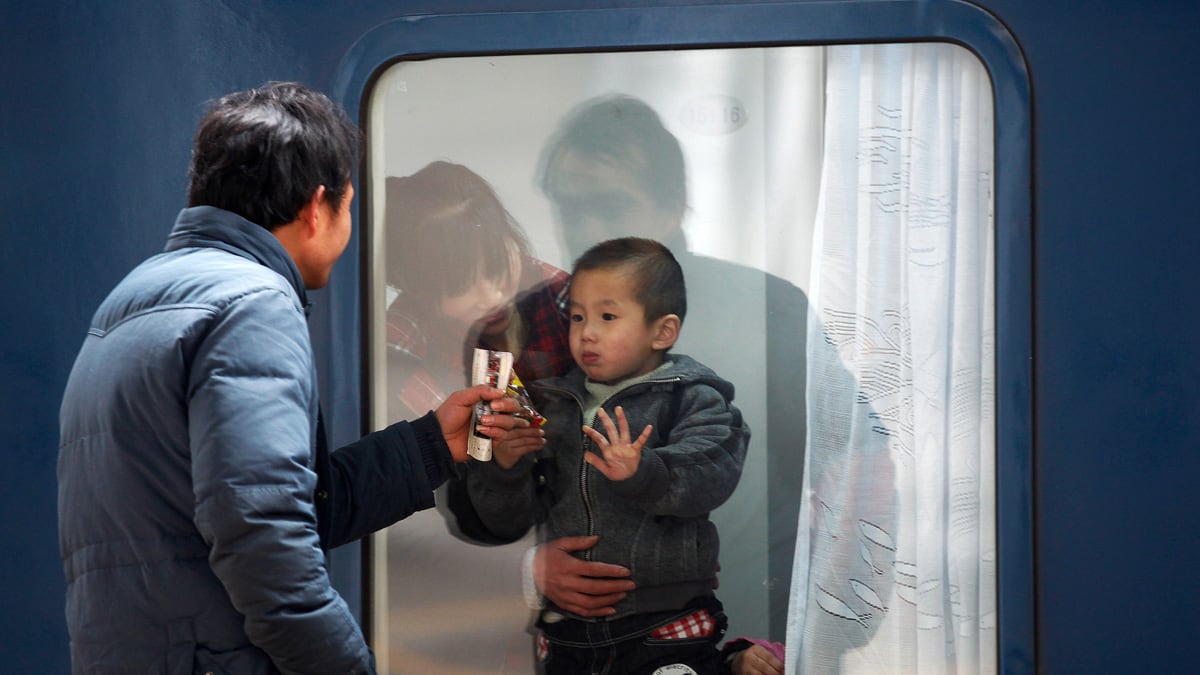Of all the murderers that Chinese police criminologist Li Meijin has met, Chen Guoqiang (not his real name) was one of the most memorable. Born in rural Henan province in eastern China, Chen was the son of migrant workers. Before he turned 6, both of his parents had moved to the city to find work, leaving Chen in the countryside with his grandmother and uncle. “He didn’t obey them,” Li said in an interview. By age 12 he stopped going to school. By age 17, he started committing crimes, robbing shopkeepers and passersby, sometimes killing those who resisted. Finally, in 2006 Chen robbed and killed a Chinese journalist in the northeastern city of Dalian, and the police nabbed him when he tried to hock her stolen video equipment.
While Chen was in jail awaiting trial on a total of six murder charges, Li questioned him and learned of his story. “He knew nothing about laws, about regulations, about delayed gratification,” Li recalled. “He’d had no parental care when he was young.” (Chen was executed for his crimes in 2007; Li declined to reveal his identity to protect the privacy of his surviving relations.)
Although Chen's is a rare and extreme case, according to Li and other analysts, it underscores a growing problem in China: the increasing number of parentless children in the countryside. Some become juvenile delinquents at an early age. Others are insecure and reclusive. Still others fall victim to sexual abuse. These left-behind kids grow up in rural villages without much contact with their parents, who work in China’s cities and often delegate child-rearing duties to grandparents or other relatives. Too often, analysts said, these left-behind kids encounter trouble while home alone.
Migrant workers deserve a big chunk of the credit for China's phenomenal post-Mao economic boom. Now numbering more than 158 million, according to the National Bureau of Statistics, their tireless productivity has kept factories churning and construction sites humming. They helped build the Chinese Dream. But over the past three decades, life without parents has been a nightmare for some members of the younger generation. And analysts said that many couples’ long absences from their children and from each other are taking a human toll in terms of their kids' education, physical safety, and psychological well-being. “My message to mothers of kids under 6 is this,” said Li. “Please don't travel far from home to find work.”

Nationwide, Chinese children left behind in the boondocks by parents working in the cities now number at least 60 million, according to the All-China Women's Federation (ACWF), a Beijing-based NGO. The reasons are largely financial and bureaucratic. Many migrants, who now comprise more than 10 percent of China's total population, lack the resources to bring families to the city, where real estate prices have skyrocketed. Husbands and wives often work in different places; even if they're employed in the same city, each might be housed in a cramped factory dorm.
Rural-born migrants working in urban areas also lack the proper household registration for the city where they work. This means they're second-class citizens, without the same access to health care, children's primary schooling, and social-welfare services that city dwellers with proper registration enjoy. Education for migrant kids also tends to cost more. Some cities such as Shanghai have promised to do away with some discrimination and just last week the government vowed to begin providing public services based on actual residence, not household registration. Even so, rural-born students are only permitted to take university entrance exams in their birthplaces—regardless of how long they've lived in urban areas—and so for many kids the road to higher schooling ultimately loops back to the countryside.
Many left-behind children see their parents only two or three times annually (usually during the Chinese Lunar New Year and at major family events) for little more than a dozen days total each year. “In extreme cases, some migrant workers don’t come home for a reunion with their kids for three or four years,” said Nie Mao, a professor of humanities at Central South University and a leading researcher into the plight of left-behind kids. “There are many long-term negative effects ... [they] all more or less have psychological problems, and some are already committing crimes.”
He ticked off a sobering list of problems among many left-behind children, from inferiority complexes and insecurities to substandard education and family conflicts. He cited cases of left-behind children who died because they didn't know how to cope with natural disasters such as floods. He recounted one case in which an unsupervised 13-year-old boy was used by traffickers as a drug mule. "His mother could do nothing about his criminal behavior," said Nie.
Sexual abuse is also a major problem, Nie said. A recent article by China Youth Daily, a Beijing-based paper, and later picked up by other media, found that sexual abuse of minors is “often rampant in villages where parents are often thousands of kilometers away laboring as migrant workers, unable to keep a watchful eye on their children.” Recently, a 12-year-old girl living in rural Henan province in eastern China—left by her migrant-worker parents in the care of her 65-year-old grandmother—was found to be four months pregnant. A man living nearby had reportedly forced the girl to have sex with him repeatedly, threatening to throw her in a river if she reported the abuse to anyone.
No fewer than 19 similar cases took place last year in the same small township in Henan. Similar research conducted in the southern province of Guangdong meanwhile found that 2,506 children under the age of 18 and living in parentless homes had been sexually abused over the past three years, according to local media; more than half the victims were under 14. The actual number of incidents of sexual abuse of left-behind kids (and of pedophilia in general) is likely much higher, since Chinese society still places a huge social stigma on victims of sexual assault. Many rapes go unreported, analysts said.
Nearly three-quarters of left-behind children are being cared for by grandparents, according to the ACWF. To be sure, many of these caregivers are as loving, capable and attentive as parents—occasionally even more so. “But some grandparents are elderly, and it’s difficult for them to control children," said Li Lei, a former editor and now a Changsha-based researcher into the topic of left-behind children (he himself was one). “Even if the grandparents see kids stealing things or fighting with others, they can’t catch them since kids can run faster. Sometimes grandparents are reluctant to discipline the children. Gradually this brings about negative effects.”
Five percent of left-behind children live on their own in the countryside, according to the ACWF. Literally left home alone, perhaps with relatives living nearby who pop in now and again, these parentless kids can easily fall between the cracks in Chinese society, analysts said.
Those who turn out like Chen Guoqiang, the killer, are clearly not the norm, but the broader point, according to Li, the senior criminologist remains problematic for China: “If a person hasn’t received love and care when he was a child, how could we expect him to be nice to others and to society when he grows up?” As more and more left-behind children reach adulthood, Chinese psychologists and government authorities are increasingly grappling with that question.






